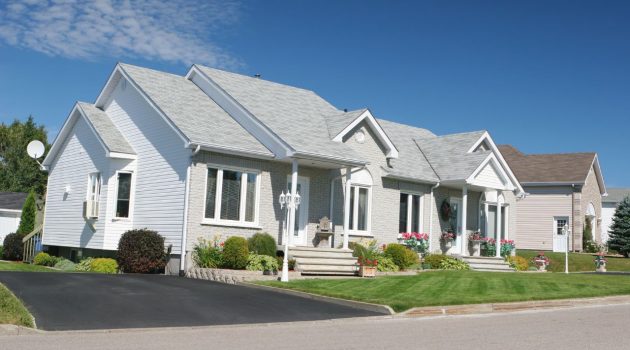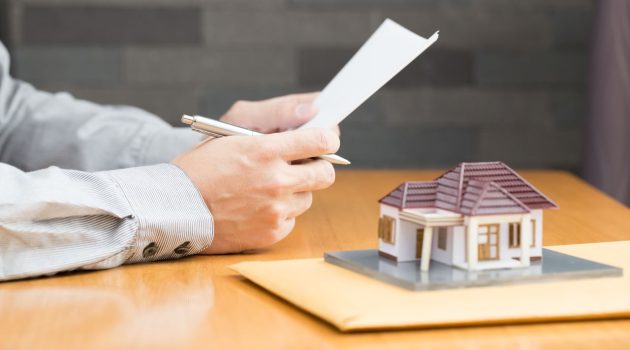Renting a home for the first time is an exciting milestone, but it can also seem overwhelming. From figuring out rent payments to understanding a lease agreement, there are many things you’ll need to consider.
Learning about the essentials can help you avoid common pitfalls and ensure a smooth experience.
Knowing what to expect and being prepared can make all the difference in your first rental experience.
Whether you’re selecting an apartment based on its amenities or navigating the terms of your lease, careful planning and understanding your responsibilities as a renter will set you up for success.
1. Read the Lease Agreement Carefully

Before signing any lease agreement, take the time to read every part of it. This contract outlines your responsibilities as a renter and what you can expect from your landlord. Not understanding parts of your lease can lead to unexpected problems down the road.
Look for details about rent payments, security deposits, and lease terms. Knowing these specifics will help avoid confusion or disputes later. Make sure you know the due date for rent and any penalties for late payments.
Check for rules on maintenance and repairs. Some leases require you to handle minor repairs, while others have the landlord take care of everything. It’s important to understand who is responsible for what.
Also, pay attention to any restrictions. This can include pet policies, noise regulations, and guest limitations. Being aware of these rules helps you avoid breaking them unintentionally.
If you find any clauses that are unclear or seem unfair, don’t hesitate to ask the landlord for clarification. It’s better to address these issues before signing.
Taking the time to read and understand your lease agreement ensures a smoother renting experience. It prepares you for what to expect and helps you avoid surprises.
2. Check for any required renter’s insurance

When renting an apartment, you might need renter’s insurance. Some landlords require it, so it’s best to double-check.
Renter’s insurance protects your belongings if something unexpected happens, like a fire or theft. Even if not required, it’s a smart move.
Policies are usually affordable, often costing just a few dollars a month. This small investment can save you a lot of money and stress if something goes wrong.
Make sure to read the insurance policy carefully. You’ll want to know what’s covered and what’s not.
If your landlord requires insurance, they should tell you how much coverage is needed. If not, consider getting enough to replace your valuable items.
Get quotes from different insurance companies. This way, you can find the best deal for your needs.
Having renter’s insurance can give you peace of mind. Knowing that you are protected makes renting your first home a smoother experience.
3. Document the Condition of the Property
Before you move in, take pictures of everything. Pay special attention to any damage, like scratches on the floor or dents in the walls. This can help you avoid problems when you move out.
Make a list of all the issues you find. Write them down and send a copy to your landlord. This proves that the problems were there before you arrived.
Don’t forget to include even small things. A tiny crack in a window or a stain on the carpet can be important. It’s better to be safe and list everything.
Finally, keep all your photos and notes in a safe place. You might need them later to get your security deposit back. If you document everything well, you’ll have proof of the property’s condition when you moved in.
4. Ask about utility costs and providers
When renting a home, you need to ask about utility costs and providers. Utilities can include electricity, water, heating, and more. It’s important to know who will be responsible for paying these bills.
Ask your landlord which utilities are included in the rent. Sometimes landlords cover trash removal, but other utilities may be your responsibility.
Find out which providers service the area. Some properties have set providers you must use, while others give you a choice. Knowing this will help you set up accounts quickly.
Inquire about average utility costs for the property. This can give you a better idea of what to budget each month. Costs can vary based on usage and provider rates.
Some places may have flat rates for certain utilities. This means you pay the same amount every month, which can be easier to manage. Ask if this is an option at your new place.
Remember, setting up some utilities might have fees. For example, internet and cable providers often charge setup fees. It’s good to be prepared for these additional costs.
5. Meet the neighbors

Getting to know your neighbors can make your new place feel more like home.
Start by saying hi when you see them outside or in common areas. A simple smile and hello can go a long way in breaking the ice.
Consider hosting a small get-together. Invite your neighbors over for coffee or snacks. This informal setting is perfect for getting to know them.
Don’t forget about local events. Join neighborhood activities or meetings. These can be great opportunities to meet others living around you.
Take walks in your neighborhood. This gives you a chance to bump into people and have short, friendly chats.
If you’re feeling a bit shy, try learning your neighbors’ names and addressing them directly. It shows you care and helps build familiarity.
Remember to be open and approachable. Being friendly and polite can help you make connections quickly.
Making the effort to meet your neighbors will help create a supportive and friendly environment in your new home.
6. Understand Pet Policies

When renting with a pet, knowing the pet policies is crucial. Each property may have different rules about pets.
Some rentals charge extra fees for pets. These can be upfront non-refundable fees or a monthly pet rent. Sometimes, you might also need to pay a refundable pet deposit.
Check local laws about pet fees. In some places, charging certain fees for pets is not allowed.
Always communicate with your landlord or property manager about having a pet. Some places have restrictions on the type or size of pets allowed.
Make sure to get any agreements in writing. This can help avoid misunderstandings later.
Understanding the pet policies can help ensure a smooth rental experience for you and your furry friend.
7. Identify the nearest emergency services
Knowing where the nearest emergency services are is essential. Find the closest hospital, fire station, and police station. This ensures that help is readily available during an emergency.
Check online maps or ask your neighbors for the locations of these services. It’s vital to be aware of how long it takes to reach them from your home.
Save the contact information for these services in your phone. Also, have them posted somewhere visible in your home, like the refrigerator. This way, you’ll have quick access to them if needed.
Familiarize yourself with the best routes to these locations. Practice driving or walking these routes so you know the fastest way to get there. This can be crucial in an emergency where every second counts.
8. Familiarize Yourself with Garbage Collection Days
One of the first things you should do after moving into a new place is to find out the garbage collection schedule. Knowing when to put out your trash is important to keep your home clean and avoid any mess.
Check with your landlord or the previous tenant about the pickup days. You can also look up the information on your city’s official website. Most cities have a section where you can enter your address and find the collection days.
It’s helpful to set a reminder for these days. If you miss one, the trash can pile up quickly. Consider using a calendar or an app on your phone. This will make sure you never forget when to take out the trash.
Some areas might have different days for recycling and yard waste. Make sure you know all the schedules to keep everything organized. Sorting your waste correctly can also help you follow local rules and be more environmentally friendly.
By staying on top of garbage collection, you keep your new home neat and pleasant. It’s a small task, but it can make a big difference in your daily life. Taking the time to learn the schedule shows responsibility and helps you settle into your new place smoothly.
9. Research the landlord’s reputation
Before signing a lease, it’s important to find out more about your prospective landlord.
Start by searching online for reviews. Websites like Yelp, Google Reviews, and social media platforms can provide insights from previous tenants. Look out for comments on how quickly the landlord responds to maintenance issues and how they’ve treated tenants overall.
Ask current tenants about their experiences. If you get the chance, speak directly with people who live in the building or complex. They can share firsthand experiences and provide valuable insights.
Visit local tenant forums or community groups. These can be great places to ask questions and learn about the reputation of landlords in specific areas. Other renters may share stories that could help you make an informed decision.
Check public records for any past legal issues. If a landlord has a history of lawsuits or evictions, it may be a red flag. Public records can sometimes be found online or at local government offices.
By doing a little research, you can avoid potential headaches and ensure you’re choosing a landlord who is responsible and fair.
10. Arrange a Moving Day Checklist

Preparing a moving day checklist will make the whole process smoother. Start by listing all essential tasks you need to get done. This could include packing, renting a moving truck, and changing your address.
Make sure to gather all your important documents. Keep them in a safe and easily accessible place. This includes your lease, ID, and any moving contracts.
Pack a “survival kit” for your first night. This should have essentials like toiletries, a phone charger, and a change of clothes. Don’t forget to pack bedding or a sleeping bag for a comfortable first night.
Label your boxes clearly. Write down the contents and which room they belong in. This saves time when unpacking and helps movers place boxes in the right spot.
Arrange any help you might need. Whether you’re hiring movers or relying on friends and family, make sure everyone knows the schedule.
Stay hydrated and keep snacks on hand. Moving day can be long and tiring, so it’s important to keep your energy up.
Finally, do a last-minute check of your old place. Make sure nothing is left behind and that it’s clean for the next tenants.
11. Set up a monthly budgeting plan

Creating a monthly budget is crucial when renting your first apartment. It helps you manage your expenses and ensures you can afford everything you need.
Start by determining your gross monthly income. This is the total amount you earn before taxes.
Next, list your monthly expenses. Include rent, utilities, groceries, transportation, and other essentials.
Don’t forget one-time costs like moving fees and deposits. Spread these out over the first few months to avoid unexpected financial strain.
Remember to allocate money for savings and emergency funds. It’s important to have a safety net for unexpected expenses.
Track your spending regularly. Use apps or make a simple spreadsheet to monitor where your money goes.
Adjust your budget as needed. Your expenses may change over time, so be flexible and update your plan accordingly.
By setting up and sticking to a monthly budget, you can avoid financial stress and enjoy your new home!
12. Change the locks if permitted
When you move into a new rental, it’s important to feel safe. One way to ensure this is by changing the locks. If your lease allows it, talk to your landlord about your options for replacing or re-keying the locks.
Returning the keys to former tenants or having copies floating around can be a security risk. By changing the locks, you gain control over who has access to your home.
Make sure to follow proper procedures. First, get written permission from your landlord. Then, hire a professional locksmith to replace the locks, ensuring they meet all safety standards.
If changing locks is not allowed, discuss alternative security measures with your landlord. These could include adding deadbolts or security chains to existing locks.
Feeling secure in your new home is crucial. Taking steps to control access will help you settle in and make your new place feel like home.
13. Know your rights as a renter

When renting for the first time, it’s important to know your rights. Understanding these rights protects you from unfair treatment.
You have the right to a safe and habitable living space. Your landlord must keep the property in good condition and make necessary repairs.
You also have the right to privacy. Landlords usually need to give notice before entering your apartment, typically 24 hours.
Be aware of rent control laws. Some areas have rules about how much your rent can increase each year.
Security deposit rules vary by location. Landlords can’t use it unfairly or withhold it without reason. You should get your deposit back if you leave the place clean and undamaged.
Discrimination in housing is illegal. You can’t be denied a rental based on race, color, religion, sex, national origin, familial status, or disability.
Knowing these rights can help you feel more secure in your new home. If you ever face issues, many cities offer resources and support for renters.



